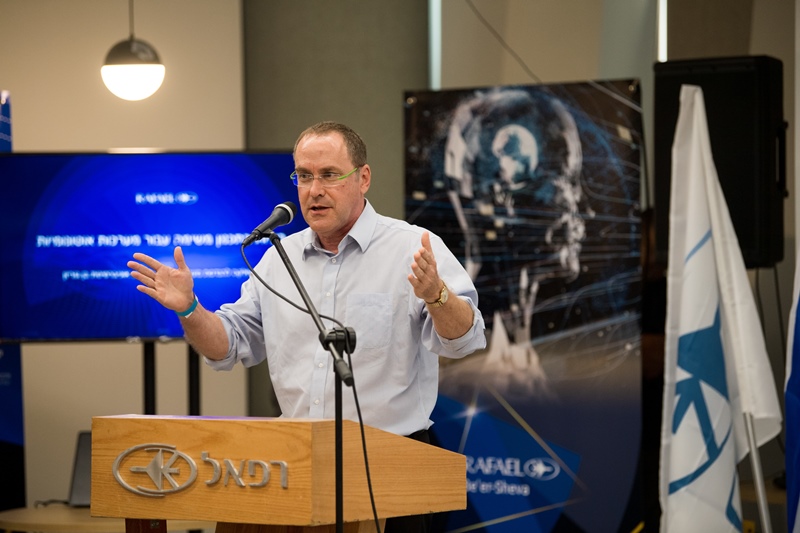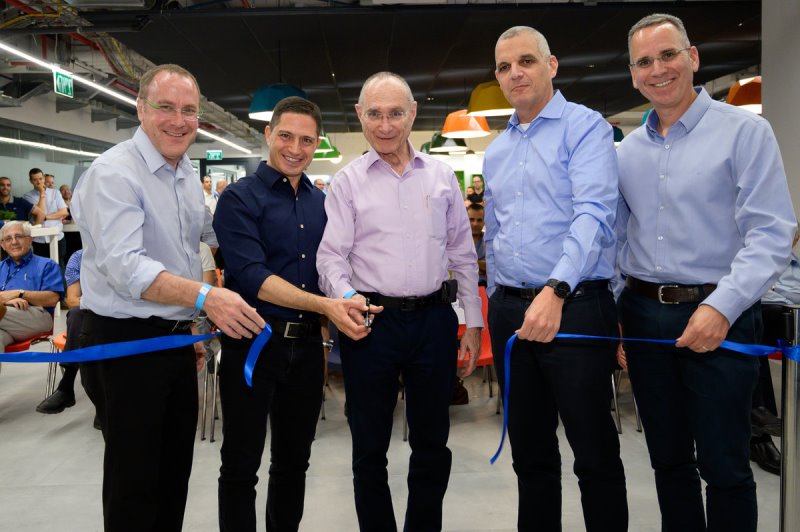BGU and Rafael Advanced Defense Systems Ltd.celebrated the opening of the defense giant's research and development center at BGU's Advanced Technologies Park yesterday (Tuesday).
"It may be a little bit counterintuitive, geographically speaking, but here in Beer-Sheva we are the center of the world, and Rafael's decision to place their R&D center here in our hi-tech park proves it. This is the change in reality that we have dreamed of. Our partnership with Rafael is total, and I am 100 percent certain that our students will find work here, and will stay in Beer-Sheva to build their adult lives," said BGU President Prof. Daniel Chamovitz at a ceremony celebrating the opening.
 Above: BGU President Prof. Daniel Chamovitz speaks during the ceremony
Above: BGU President Prof. Daniel Chamovitz speaks during the ceremony
President Chamovitz was joined by Rafael CEO Yoav Har-Even, Chairman Dr. Uzi Landau, Dr. Ran Gozali, executive vice president and head of Rafael's R&D and Engineering Division, Beer-Sheva Mayor Ruvik Danilovitz and Yigal Ono, director of the National Cyber Directorate.
Har-Even said that the center, to be managed by Rotem Yoeli, already employs about 15 researchers, most of whom are from BGU, and added that that number is expected to grow to include several dozen people in the next two years.
"Rafael is opening its doors to BGU graduates," said Dr. Gozali, who studied electrical engineering at the University. "Who knows? Maybe one day a BGU alumnus will take over from me as the head of R&D at Rafael."
 Above (left to right): Prof. Daniel Chamovitz, Ruvik Danilovitz, Dr. Uzi Landau, Yoav Har-Even and Dr. Ran Gozali
Above (left to right): Prof. Daniel Chamovitz, Ruvik Danilovitz, Dr. Uzi Landau, Yoav Har-Even and Dr. Ran Gozali
The opening was the latest in a string of collaboration agreements between BGU and Rafael. In January, BGN Technologies, BGU's technology transfer company, signed a multi-year research collaboration in the fields of cyber security, smart mobility, robotics, and artificial intelligence (AI). The two initial projects will focus on the dangers related to cyber break-ins and developing strategies to deal with them via the use of automatic car sensors. Self-driving cars use a number of sensor systems including cameras, radar and lidar, all of which are potential targets for cyberattacks.
Artificial intelligence and machine learning will be useful in identifying and mapping possible weak points, as well as developing strategies and technologies to defend them.
Media Coverage:
CTech Calcalist
NoCamels